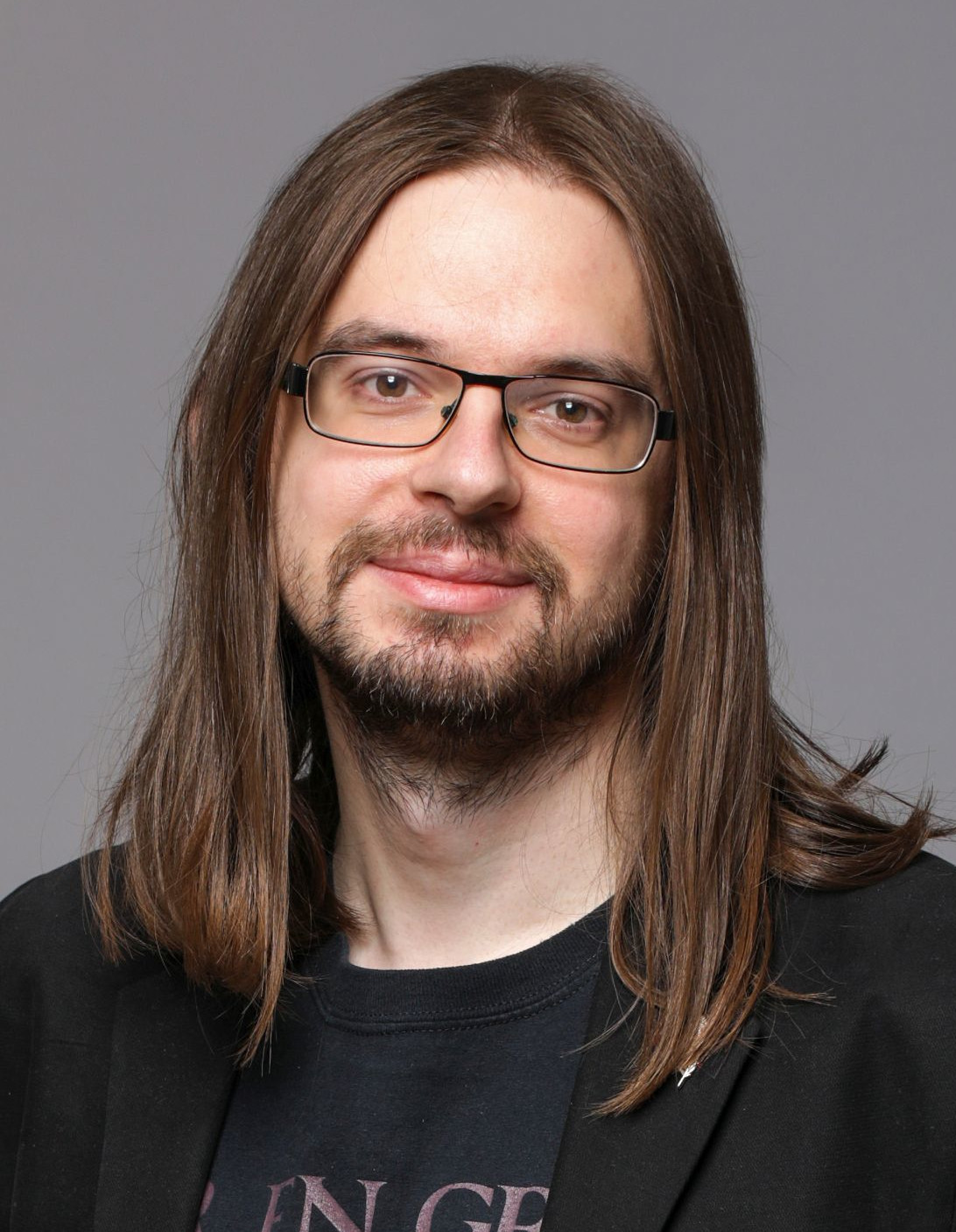Odjel za računalnu inteligenciju
Odjel za računalnu inteligenciju Hrvatske sekcije IEEE poziva vas na predavanje
"An Overview of Evolutionary Multi-Objective Optimization"
koje će održati prof. dr. sc. Carlos A. Coello Coello u petak, 4. prosinca 2020. godine, u 17.00 sati putem platforme Zoom. Predavanje se održava na engleskom jeziku i otvoreno je za sve zainteresirane, a posebno se pozivaju studenti. Životopis predavača i sažetak predavanja kao i podaci za pristup predavanju nalaze se u nastavku obavijesti.
The talk will be held by professor Carlos A. Coello Coello on Friday, 4th December at 17:00 using Zoom (the lecture is in English). The link to the event is available here, as well as in the remainder of this announcement.
Podaci za pristup
Poveznica na Zoom pristup:
https://us02web.zoom.us/j/87465756352?pwd=NDBxRVJ0REo2ZmRNc1lEWTRDc2lkUT09
Prezentacija s predavanja dostupna je ovdje: https://tinyurl.com/yyl8txaj, https://www.youtube.com/watch?v=dCBEdYJOigo
Sažetak predavanja:
Multi-objective optimization refers to solving problems having two or more (often conflicting) objectives at the same time. Such problems are ill-defined and their solution is not a single solution but instead a set of them, which represent the best possible trade-offs among the objectives. Evolutionary algorithms are particularly suitable for solving multi-objective problems because they are population-based, and require little domain-specific information to conduct the search. Due to these advantages, the development of the so-called multi-objective evolutionary algorithms (MOEAs) has significantly increased in the last 15 years. In this talk, we will provide a general overview of the field, including the main algorithms in current use as well as some of the many applications of them.
Biografija predavača:
Carlos Artemio Coello Coello received a PhD in Computer Science from Tulane University (USA) in 1996. His research has mainly focused on the design of new multi-objective optimization algorithms based on bio-inspired metaheuristics (e.g., evolutionary algorithms), which is an area in which he has made pioneering contributions. He currently has more than 500 publications, including more than 160 journal papers and 55 book chapters. He has published a monographic book and has edited 3 more books with publishers such as World Scientific and Springer. He has also published a book on the history of computing in Spanish, which has sold more than 3000 copies. He has supervised 21 PhD theses (including 3 in Argentina), 46 Masters thesis (including one in France) and 8 Undergraduate theses. Several of the PhD theses that he has supervised, have received awards in national competitions. He has also received (with his students) several “best paper awards” at different international conferences, including the prestigious Genetic and Evolutionary Computation Conference (GECCO), which is the most important in his field. He is also the only Latin American who has been awarded twice the “best paper award” of the IEEE Transactions on Evolutionary Computation. His publications currently report 52,662 citations in Google Scholar. According to Scopus, Dr. Coello has 18,782 citations, excluding self-citations and citations from all his co-authors. His h-index is 92, according to Google Scholar, 60 according to Scopus and 52 according to the ISI Web of Science. In the ShanghaiRanking’s Global Ranking of Academic Subjects 2016 developed by Elsevier, he appears as one of the 300 most highly cited scientists in the world in “Computer Science”, occupying the first place in Mexico.
He has received several awards, including the National Research Award (in 2007) from the Mexican Academy of Science (in the area of exact sciences), the 2009 Medal to the Scientific Merit from Mexico City's congress, the Ciudad Capital: Heberto Castillo 2011 Award for scientists under the age of 45, in Basic Science, the 2012 Scopus Award (Mexico's edition) for being the most highly cited scientist in engineering in the 5 years previous to the award and the 2012 National Medal of Science in Physics, Mathematics and Natural Sciences from Mexico's presidency (this is the most important award that a scientist can receive in Mexico). He also received the Luis Elizondo Award from the Instituto Tecnológico de Monterrey in 2019.
He is the recipient of the prestigious 2013 IEEE Kiyo Tomiyasu Award, "for pioneering contributions to single- and multiobjective optimization techniques using bioinspired metaheuristics" and of the 2016 The World Academy of Sciences (TWAS) Award in “Engineering Sciences”. Since January 2011, he is an IEEE Fellow. He is also Associate Editor of several international journals including the IEEE Transactions on Evolutionary Computation, Evolutionary Computation and the IEEE Transactions on Emerging Topics in Computational Intelligence. He has been appointed as Editor-in-Chief of the IEEE Transactions on Evolutionary Computation for the period 2021-2022.
He is Full Professor with distinction (Investigador Cinvestav 3F) at the Computer Science Department of CINVESTAV-IPN in Mexico City, Mexico.


